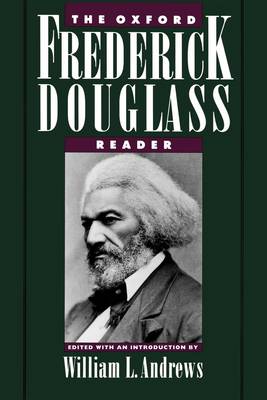
Bedankt voor het vertrouwen het afgelopen jaar! Om jou te bedanken bieden we GRATIS verzending (in België) aan op alles gedurende de hele maand januari.
- Afhalen na 1 uur in een winkel met voorraad
- In januari gratis thuislevering in België
- Ruim aanbod met 7 miljoen producten
Bedankt voor het vertrouwen het afgelopen jaar! Om jou te bedanken bieden we GRATIS verzending (in België) aan op alles gedurende de hele maand januari.
- Afhalen na 1 uur in een winkel met voorraad
- In januari gratis thuislevering in België
- Ruim aanbod met 7 miljoen producten
Zoeken
Omschrijving
The Oxford Frederick Douglass Reader collects in one volume the most outstanding and representative work from Frederick Douglass's fifty-year writing career, including all the major genres in which he worked: autobiography, journalism, oratory, and fiction. The Reader contains the following classic texts in their entirety: the landmark fugitive slave narrative Narrative of the Life of Frederick Douglass, An American Slave (1845); the consummate anti-slavery oration "What To the Slave Is the Fourth of July?" (1852); the pioneering novella The Heroic Slave (1853); and the magisterial analysis of lynching Lessons of the Hour (1894). Generous selections from Douglass's second autobiography, My Bondage and My Freedom (1855), illustrate his boldly revisionist personal and political agenda, while major chapters from both the 1881 and the 1892 editions of the final autobiography, Life and Times of Frederick Douglass, reveal the author's perspective on his own successes and his estimate of the nation's progress on the racial front in the post-war era. Also included are notable examples of Douglass's journalism, in which he advocated women's rights and black enlistment in the Civil War. In addition, the private as well as the public Douglass finds a voice in the Reader, as he responds to criticism of his decision to choose a white woman as his second wife and also discloses his carefully guarded views of religion through a little-known 1886 letter.
Editor William L. Andrews has provided an introduction and headnotes that give basic, accessible information regarding Douglass's life, writing purposes, and the reception of his texts, offering a thoughtful review of the crucial developments in Douglass's multiple careers as autobiographer, journalist, lecturer, and racial spokesman. The Oxford Frederick Douglass Reader provides students and readers with the most complete, diverse, and personally revealing record available of nineteenth-century black America's most celebrated writer.
Editor William L. Andrews has provided an introduction and headnotes that give basic, accessible information regarding Douglass's life, writing purposes, and the reception of his texts, offering a thoughtful review of the crucial developments in Douglass's multiple careers as autobiographer, journalist, lecturer, and racial spokesman. The Oxford Frederick Douglass Reader provides students and readers with the most complete, diverse, and personally revealing record available of nineteenth-century black America's most celebrated writer.
Specificaties
Betrokkenen
- Auteur(s):
- Uitgeverij:
Inhoud
- Aantal bladzijden:
- 384
- Taal:
- Engels
Eigenschappen
- Productcode (EAN):
- 9780195091182
- Verschijningsdatum:
- 18/01/1996
- Uitvoering:
- Paperback
- Formaat:
- Trade paperback (VS)
- Afmetingen:
- 155 mm x 233 mm
- Gewicht:
- 544 g

Alleen bij Standaard Boekhandel
+ 420 punten op je klantenkaart van Standaard Boekhandel
Beoordelingen
We publiceren alleen reviews die voldoen aan de voorwaarden voor reviews. Bekijk onze voorwaarden voor reviews.









